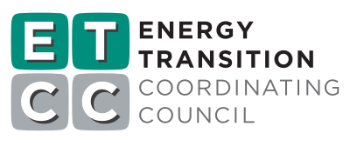Project Info
ACTIVE
Project Title
Commercial Kitchen Hot Water System Decarbonization Market Needs Study
Project Number ET25SWE0010 Organization SWE (Statewide Electric ETP) End-use Water Heating/DHW/HPWH Sector Commercial Project Year(s) 2025 - 2026Description
California’s decarbonization goals are dependent on individual decision makers choosing to upgrade systems dependent on fossil fuels. Reaching those decision makers is challenging, none more so than commercial kitchen owners and operators, who are managing a variety of factors including small margins, high staff turnover, and health and safety priorities. CalNEXT has supported various research efforts in the commercial kitchen space, including CalNEXT project (ET22SWE0019) which identified overarching barriers to heat pump implementation in commercial kitchens, including lack of accessible information on decarbonization. It also funded CalNEXT project (ET22SWE0048) which produced design guides outlining engineering and management techniques to support decarbonization. However, research to date has not asked commercial kitchen decision makers what resources and tools they need or want to support change. The proposed research seeks to address this gap by engaging with commercial kitchen stakeholders to determine the tools and resources they want for supporting decarbonization. The project team will explore various formats such as calculators, curriculums, and infographics to ensure the information is practical and actionable. Results will indicate how program administrators can best serve and support commercial kitchen decision makers. This research will not be technology specific, instead focusing on communication and outreach strategies related to the design and maintenance of all hot water systems (water heaters, dishwashing, distribution, etc). To perform the market needs study, the research team will: 1. Create a market map of the key actors in the commercial kitchen space. This map will identify the key types of actors influencing commercial kitchen owners and operators and present the relationships between the actors by defining roles and influencers in decision making processes. 2. Examine market actor perspectives to understand their wants and needs to perform their work. It will inquire about their challenges and look for opportunities for which their pains could be addressed by upgrades that align with electrification opportunities. It will also inquire about existing tools and resources they rely on to perform their jobs, so that program administrators know what types of tools and resources could be updated to reflect decarbonization needs. 3. Lastly, it will inquire whether new tools and resources are needed to meet decarbonization plans. To conduct this research, the team will interview members from a variety of market actor groups, such as commercial kitchen designers, equipment installers, equipment maintenance contactors, kitchen managers, and restaurant owners. The team expects to conduct up to 40 video interviews across a total of five market actor groups, including up to 20 interviews with kitchen owners, operators, and up to 20 interviews with members from other market actors groups. This research will seek input from a variety of commercial kitchen owners and managers, such as small and large kitchens, chains versus independent kitchens. The team will also dedicate resources to target minority owned restaurants, expected to make up half of the commercial kitchen owner and manager interviews.
